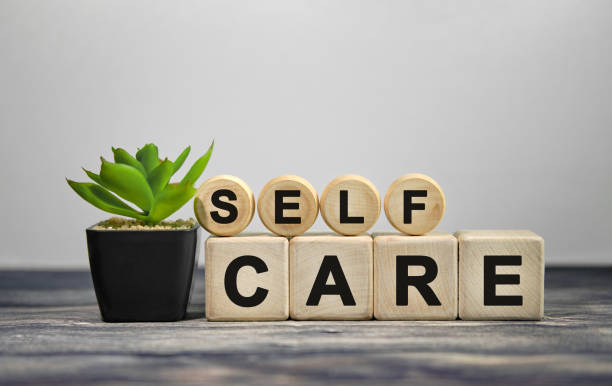Developing healthy habits is the cornerstone of living a fulfilling and vibrant life. These habits not only enhance your physical well-being but also contribute to mental and emotional health. Whether you’re aiming to lose weight, improve your fitness, or simply feel better overall, cultivating positive habits is essential. In this guide, we’ll explore the key areas where you can develop healthy habits, provide practical tips for getting started, and discuss the long-term benefits of maintaining these practices.
1. Understanding the Importance of Healthy Habits

Healthy habits are the small, consistent actions you take every day that contribute to your overall well-being. Unlike short-term diets or temporary exercise plans, healthy habits are sustainable practices that become an integral part of your lifestyle. These habits help you manage stress, maintain a healthy weight, and reduce the risk of chronic diseases such as heart disease, diabetes, and obesity. Moreover, they contribute to better mental health by promoting a positive mindset and reducing anxiety and depression.
2. Establishing a Healthy Diet

A. Balanced Nutrition
One of the most critical aspects of developing healthy habits is adopting a balanced diet. Your body needs a variety of nutrients, including carbohydrates, proteins, fats, vitamins, and minerals, to function optimally. You can be sure that your body is getting all the nutrients it needs by eating a wide variety of meals.
B. Portion Control
Even nutritious meals might contribute to weight gain if overindulged in. Maintaining a healthy weight requires portion management practices. To prevent eating out of boredom or stress, use smaller plates and pay attention to your body’s hunger signs.
3. Incorporating Regular Physical Activity

A. Finding an Exercise Routine That Works for You
Regular physical activity is a vital component of developing healthy habits. Exercise not only helps you maintain a healthy weight but also improves cardiovascular health, strengthens muscles and bones, and boosts mood and energy levels. Finding activities you enjoy is crucial to maintaining an exercise regimen.
B. Making Exercise a Habit
To make exercise a habit, start by setting realistic goals and gradually increasing the intensity and duration of your workouts. Consistency is key, so find a routine that fits your schedule and stick to it. Whether it’s a morning jog, a lunchtime walk, or an evening yoga session, regular exercise should become a non-negotiable part of your day.
4. Prioritizing Mental and Emotional Health

A. Practicing Mindfulness and Meditation
Emotional and mental health are equally vital as physical health. Developing healthy habits for your mind can reduce stress, improve focus, and enhance your overall quality of life.
B. Building Healthy Relationships
Strong, positive relationships are essential for emotional health. Surround yourself with supportive friends and family, and take time to nurture these relationships. Communicate openly, listen actively, and make an effort to spend quality time with loved ones.
5. Establishing a Consistent Sleep Routine

A. Understanding the Importance of Sleep
Adequate sleep is crucial for both physical and mental health. Your body heals itself, solidifies memories, and balances hormones as you sleep. Lack of sleep can lead to a host of health issues, including weight gain, weakened immune function, and increased risk of chronic diseases.
B. Tips for Better Sleep
Developing healthy sleep habits involves creating a sleep-friendly environment and establishing a consistent sleep schedule.
Read More: https://thetopteninfo.com/2024/08/01/importance-of-quality-sleep-for-metabolism/
6. Managing Stress Effectively

A. Identifying Stressors
Although stress is a normal part of life, prolonged stress can be harmful to your health. Identifying your stressors and finding healthy ways to cope with them is essential for developing healthy habits.
B. Stress-Relief Techniques
Incorporating stress-relief techniques into your daily routine can help you manage stress more effectively.
Read More: https://thetopteninfo.com/2024/08/16/techniques-for-reducing-stress/
7. Staying Hydrated

A. The Role of Hydration in Health
Almost all body processes, including digestion, circulation, and temperature regulation, depend on water. Staying hydrated helps you maintain energy levels, support digestion, and keep your skin healthy.
B. Tips for Staying Hydrated
It’s critical to drink enough water to sustain general health and wellbeing. Proper hydration supports various bodily functions, from regulating temperature to aiding digestion. Here are a few useful suggestions to keep you hydrated all day.
Conclusion
Developing healthy habits is a journey that requires commitment, patience, and perseverance. By focusing on key areas such as diet, exercise, sleep, mental health, and hydration, you can create a foundation for a healthier, happier life. Remember that small, consistent actions lead to significant, lasting changes. Start with one habit at a time, build on your successes, and enjoy the long-term benefits of a healthy lifestyle.
FAQ
1. How long does it take to develop a new healthy habit?
It generally takes about 21 to 66 days to form a new habit, depending on the complexity of the behavior and individual factors. The key is consistency—repeating the behavior regularly until it becomes a natural part of your routine.
2. What are the most important healthy habits to start with?
Starting with small, manageable habits is the most effective approach. Some of the most impactful habits include eating a balanced diet, exercising regularly, getting enough sleep, staying hydrated, and managing stress. Focus on one or two habits at a time to avoid feeling overwhelmed.
3. How can I stay motivated to develop healthy habits?
Staying motivated can be challenging, especially when starting a new habit. Surround yourself with supportive friends and family, and remind yourself of the long-term benefits of your efforts.
4. What if I fall off track with my healthy habits?
It’s normal to experience setbacks when trying to develop new habits. The important thing is to recognize when you’ve strayed and get back on track as soon as possible. Don’t be too hard on yourself; instead, focus on making gradual improvements and learning from your mistakes.
5. Can I develop healthy habits if I have a busy schedule?
Absolutely! Developing healthy habits doesn’t require a lot of time. You can incorporate small changes into your daily routine, such as taking the stairs instead of the elevator, preparing healthy meals in advance, or practicing deep breathing exercises during a break.





